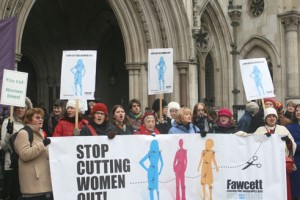Avery Hancock and Paul Rainford review British Politics and Policy’s coverage of 2011’s major political developments.
Economy, Recovery and Growth
The economic recovery continued its downward trend in 2011, with repeated warnings of a double dip recession if the severe austerity plans were rigidly adhered to. Indeed, the Chancellor George Osborne was urged to reboot and rebalance for growth, whilst also being reminded that deficit reduction shouldn’t be the only game in town, and creative solutions were needed to overcome the institutional and productive constraints on the economy. Youth unemployment reached record highs as the labour market went in freefall, with businesses lacking confidence and consumers lacking money to spend. The political fortunes of the three main parties became inextricably linked to economic developments.
Spending Cuts and Public Services

As the reality of the coalition government’s spending cuts sunk in, our authors raised concern at the disproportionate effect of social service cuts on women. Moreover, it was argued that cuts to disability benefits, legal aid, and university financing will create deep geographical and generation divides, and widen the inequality gap over the next five years. The Big Society (practically extinct by the end of the year) was deemed to be incapable of stepping in to deliver services with limited funding and accountability.
Europe
The Eurozone economies stumbled from one crisis to the next in 2011 as Greece, Spain, Portugal and Italy all took their turns in posing an existential threat to the future of the EU and the monetary union. Buoyed by Europe’s woes, the loony Tory euro-sceptics went into overdrive and 81 MPs defied the party whip on a vote calling for a referendum on Britain’s EU membership. On the blog it was suggested that this rebellion threatened to pick apart Cameron’s liberal conservative project, although the PM seemed to be quite happy in tearing it apart himself when he threatened to veto a new EU treaty in December – a move described as a disaster for Britain by one commentator. Underlying all these developments was a sense that the outcry over EU democratic legitimacy disguises a deeper crisis of capitalism in the liberal West
The Alternative Vote Referendum
Holding a referendum on introducing the alternative vote (AV) for Westminster elections formed a key part of the coalition agreement. The battle between Yes to Fairer Votes and No to AV in the weeks leading up to the May 5th referendum pitted the Prime Minister and his deputy against each other, while our authors debated the implications for wider electoral reform and whether the ultimate failure to replace First-Past-the-Post represented the crumbling of the holy grail of liberal politics.

The Parties and the Coalition
With every political development followed by the inevitable discussion of its impact on the integrity of the coalition, 2011 was a trying year for both blues and yellows. On the blog it was noted that Cameron was paying so much attention to keeping the coalition afloat that he was failing to effectively coordinate policies such that his government resembled more a ‘ring-donut’ that a coherent and integrated machine. Furthermore, the Liberal Democrats were urged to create their own narrative of governance and to be unafraid to disagree with their Tory colleagues, while Labour was urged to reconsider the political legacy of Ralph Miliband in order to resolve its quandaries with regards to extra-parliamentary action and the reform of capitalism. Liam Fox was the major political casualty of the year – as he was forced to resign on account of his links to Adam Werrity – and we covered this story by discussing the political science and theory underpinning ministerial resignations.
Phone Hacking
In July 2011 it was revealed that newspapers run by Rupert Murdoch’s News International had illegally accessed the phones of murdered schoolgirl Milly Dowler, British soldiers, and some of the victims of the 7/7 attacks. In the following weeks and months the tabloid News of the World was shut down, Andy Coulson and Rebekah Brooks were arrested and the Leveson inquiry into the ethics of the press was launched. In a series on reforming the press our authors criticised collusion between the media and the police, and debated the balance between calling for stricter press regulation and ensuring that freedom of the press is not dampened for political reasons.

English Riots
English cities erupted in lawlessness and rioting in August, as the shooting of Mark Duggan by police in Tottenham sparked off a wave of civil disobedience on a scale not seen in this country since the poll tax riots of 1990. Contributors on the blog criticised the actions of the police and their failure to learn from history, while the hysterical reactions and crude moralism that accompanied the riots were accused of narrowing the channels for engaging in genuine debates about the underlying political causes (later to be a focus of a joint research study between the LSE and the Guardian). It was contended that the riots exposed the underlying vulnerability of the British state and were symptomatic of a rejection of an economy that is no longer working for most ordinary citizens.
Arab Spring
The Arab Spring was ‘born’ in Tunisia after the self-immolation of twenty-six year old vegetable merchant Mohamed Bouazizi. Within weeks protests against the longstanding president of Tunisia resigned and protest swept through the region, prompting the overthrow of President Mubarak in Egypt, civil unrest in Yemen, uprisings in Syria, Bahrain, and unrest in the Maghreb from Algeria to Sudan. On the blog experts debated the merits of British military intervention in Libya, exploded the myth of Arab exceptionalism, considered the future of Britain’s relationship with the Palestinian territories and weighed the implications for UK defence strategy.
Please read our comments policy before posting




